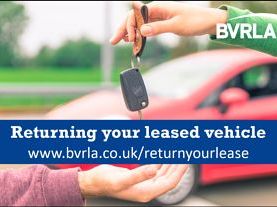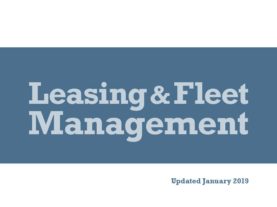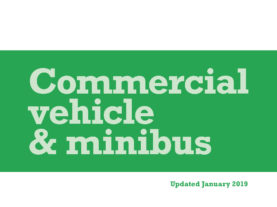Your questions answered about vehicle rental
What cover do I have included in the advertised price?
It is a legal requirement for all vehicles to have third party insurance, to cover damage to a third-party vehicle, person or their property.
Collision Damage Waiver (CDW) reduces your financial responsibility in the event of damage to the excess level, usually £1000 - £2000, depending on the type of vehicle you choose.
Theft Protection (TP) reduces your financial responsibility in the event of theft to the excess level, usually £1000 - £2000, depending on the type of vehicle you choose.
What optional cover should I consider?
Excess Waiver reduces your excess, usually to zero, but occasionally to a lower amount.
Glass and Tyres Protection covers against damage to the windscreen, windows, and tyres, which is usually excluded from CDW.
Premium Roadside Assistance covers the cost for roadside assistance in case you lock the keys in the vehicle, have a flat battery, run out of fuel, put the wrong fuel in the vehicle, or have a puncture, as basic roadside assistance usually only covers mechanical defects.
What exclusions are there?
There may be exclusions e.g. roof damage, damage caused by driving off road, undercarriage damage, or damage caused by negligence. Check the terms and conditions when you make your booking.
What is the difference between an Excess insurance policy purchased through a third party and an Excess Waiver provided by the rental company?
The excess insurance policy you can buy through a third party has no connection to the rental company and doesn’t eliminate your excess. You therefore remain liable for this amount, which is usually held as a deposit on your credit card. In the event of damage or theft of the vehicle you must pay the excess to the rental company, and make a claim on your insurance policy on return.
The Excess Waiver provided by the rental company usually eliminates the excess, so there is nothing to pay in the event of damage or theft, and there is no need to leave a large deposit.
Can I decline CDW if I have a US credit card?
US customers often have CDW provided by their credit cards. Many rental companies will accept CDW provided by US credit cards, however you will need to provide written evidence of this cover on arrival, and accept liability for the full value of the vehicle.
What are my fuel options?
Fuel Up Front - You can pay for a full tank at the start of the rental and return the vehicle empty.
Like for Like -You can return the vehicle with the same amount of fuel as it came with.
Refuelling service - You can return the vehicle with less than the amount of fuel it came with and the rental company will refuel it themselves. You may be charged a higher rate per litre or a service fee for this option.
What other optional services may I be offered?
You have the option to upgrade to a larger vehicle, add an additional driver or hire equipment such as a baby seat or Sat Nav, by paying an additional charge.
Can I return the vehicle to a different rental location?
Most rental companies will allow a you to return to a different rental location, however an additional one-way fee may be charged.
Can I take the vehicle outside of the UK?
You will need to notify the rental company in advance so they can provide a VE103 form and European breakdown assistance. There will be a charge for this service.
Will I be liable for traffic fines or parking charges?
You will be responsible for any fines incurred during your rental. The rental company will also charge an administration fee to cover the administration duties involved in handling the fine or charge. You should make yourself aware of any local traffic regulations such as the London Congestion Charge Zone, Dartford Crossing etc.
How can I pay for my rental?
Many rental companies will only accept a credit card as a method of payment, and not a debit card or cash. This is so they can pre-authorise the security deposit.
Some rental companies will accept a debit card for some aspects of the booking process; however, you will need to check with the rental company, prior to making your booking.
Is there a minimum or maximum age limit?
There may be a minimum and maximum age limit to drive, which is often 21 and 75, although this varies between rental companies. There may be an additional charge for drivers under 25, so you will need to check with the rental company, prior to making your booking.
How long do I have to have held my driving licence?
You may need to have held a driving licence for at least one year and there may be restrictions on the number of points or endorsements you may have. You will need to check with the rental company, prior to making your booking.
What Identification will I need?
You will need to provide evidence of your identity and address e.g. passport or utility bills. You may also be asked to complete an identity check for security purposes.
What happens if I damage the vehicle?
You will be liable for the cost of any damage that occurs while the vehicle is on hire to you, up to the agreed excess amount.
You therefore need to check the vehicle thoroughly at the start of the rental to ensure all the pre-existing damage is recorded. If you collect the vehicle in poor light or bad weather, inspect the vehicle again as soon as possible, and immediately notify the rental company if further damage is found.
On return, ensure you leave enough time to check the vehicle with the rental company so any new damage can be agreed.
Does the rental company have to repair the vehicle?
The rental company is not legally obliged to have the vehicle repaired, so if the damage does not affect the use or safety of the vehicle, the charge may compensate them for the damage caused. Rental companies can estimate the cost of damage from a damage rate matrix, where prices are provided by repair experts.
What happens if I return the vehicle when the rental location is closed?
If you return the vehicle outside of office hours you remain responsible for the condition of the vehicle until it has been inspected by a rental company representative when they reopen.




